Challenge Startup

How can women overcome gender bias in the startup world ?
Gender bias is a pervasive issue in many industries, including the startup world. Women face unique challenges when it comes to funding, networking, and building their businesses. However, there are strategies that women can employ to overcome these obstacles and thrive in the startup world. Here are some tips: 1\. Build a Strong Network: Networking is crucial for any entrepreneur, but it's especially important for women who may not have as many natural connections in the industry. Attend industry events, join professional organizations, and connect with other entrepreneurs on social media. Make sure to diversify your network by seeking out people from different backgrounds and perspectives. 2\. Develop Your Skills: Take courses or attend workshops to develop your skills in areas such as finance, marketing, and management. This will not only make you a more well-rounded entrepreneur but also demonstrate your commitment to learning and growing. 3\. Be Confident and Assertive: Women are often socialized to be polite and deferential, which can sometimes hold them back in business settings. Practice being confident and assertive in meetings and negotiations. Remember that you deserve to be taken seriously and that your ideas and opinions are valuable. 4\. Seek Out Mentors and Advisors: Find mentors or advisors who can offer guidance and support as you navigate the startup world. Look for people who have experience in your industry and who share your values and goals. 5\. Leverage Your Strengths: Women often bring unique strengths to the table, such as empathy, collaboration, and creativity. Emphasize these qualities in your pitches and marketing materials, and don't be afraid to highlight how they set you apart from your competitors. 6\. Stay Persistent: Starting a business is hard work, and there will inevitably be setbacks along the way. Stay persistent and focused on your goals, even when faced with rejection or failure. Remember that every challenge is an opportunity to learn and grow. 7\. Advocate for Yourself and Others: Speak up about issues of gender bias and inequality whenever you see them. Use your platform to advocate for change within your industry and support other women who are facing similar challenges. By working together, we can create a more equitable and inclusive startup world for all entrepreneurs.

How do celebrities typically get involved in startup investments ?
Celebrities are increasingly getting involved in startup investments, leveraging their fame and fortune to support innovative ventures. They typically get involved through direct investments using personal wealth or acting as angel investors, collaborative ventures with venture capital firms or starting their own funds, endorsement deals including product placements and strategic partnerships, social media promotion to influence followers or engage in affiliate marketing, public appearances at conferences or hosting funding events, and licensing and royalty agreements for brand licensing or royalty sharing. Celebrity involvement in startup investments varies widely depending on individual interests, expertise, and the nature of the opportunity.

Is there a specific formula for allocating funds in a startup budget ?
This guide provides a structured approach for startup budget allocation, emphasizing the importance of understanding the basic components of a budget and key areas of investment such as product development, marketing and sales, operational expenses, and contingency funds. It suggests following the 50/30/20 rule as a starting point and emphasizes the need for regular reviews and adaptability to ensure scalability and growth.
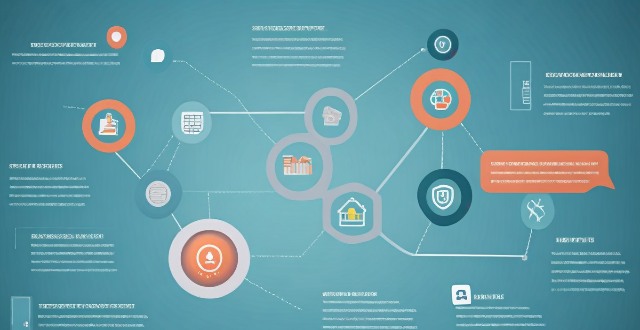
How much equity should I be prepared to give up for investment in my startup ?
When determining equity allocation for startup investment, consider theWhen determining equity allocation for startup investment, consider the type of investor, company value Finally, consider the company's goals and vision when deciding on equity allocation, as giving up too much equity can limit future options and affect control over decision-making.

Can sports provide a platform for individuals to challenge themselves and reach their full potential ?
**Summary:** This essay posits that sports provide a comprehensive platform for individuals to challenge themselves and reach their full potential. It explores how sports offer psychological benefits such as mental toughness, goal setting, and confidence building; physiological benefits including improved physical fitness, skill development, and resilience; and social benefits like teamwork, leadership, and camaraderie. Personal stories of overcoming adversity further underscore the transformative power of sports in personal growth. The conclusion affirms that sports are not just about physical activity but are a means to unlock human potential holistically.

What are some red flags that might discourage investors from funding my startup ?
Investors look for signs that a startup may not be a good investment. Here are some common red flags: 1. **Lack of a Clear Business Model**: Undefined revenue streams, no competitive advantage, ignoring market research, and underestimating costs can discourage investors. 2. **Poor Financial Management**: Lack of financial projections, inadequate funding, high burn rate, and unrealistic valuation raise concerns. 3. **Weak Team Dynamics**: A lack of diversity, inexperienced leadership, high turnover rates, and poor communication within the team or with investors are problematic. 4. **Legal and Ethical Concerns**: Intellectual property disputes, regulatory non-compliance, and ethical issues can deter investors. 5. **Product and Technology Issues**: Technological limitations, scalability problems, and a lack of innovation are major concerns. 6. **Market and Sales Challenges**: A small addressable market, saturated markets, and sales execution risks can make investors hesitant.

How do celebrities use their social media influence to promote their own startups ?
Celebrities often leverage their social media presence to promote their own startups by sharing personal stories, collaborating with other celebrities, using relevant hashtags and keywords, offering promotions and discounts, and engaging with followers.

Can celebrity endorsements really boost a startup's success ?
Celebrity endorsements can be a powerful marketing tool for startups, offering benefits such as increased brand awareness, improved perception of quality, and potential sales boosts. However, drawbacks include high costs, the risk of negative publicity, and limited target audience reach. Startups must carefully weigh these factors before pursuing a celebrity endorsement strategy, as success also depends on other factors like product quality and overall business strategy.

What are the challenges faced by Fintech startups ?
Fintech startups face several challenges, includingFintech startups face several challenges, including, competition from established players, including regulatory compliance, security risks, competition from established players, talent acquisition and retention, and scaling and sustainability. These challenges can hinder their growth and success, but many Fintech startups continue to innovate and push the boundaries of what is possible in the world of finance.

What are some alternative sources of funding for startups besides venture capital ?
Startups have various funding options beyond venture capital, including angel investors, crowdfunding, friends and family, bank loans, government grants, strategic partnerships, and bootstrapping. Each method has its advantages and drawbacks, so startups should carefully consider their options based on their specific needs and goals.

What are the main challenges faced by low-income countries in achieving sustainable development ?
Low-income countries face numerous challenges in achieving sustainable development, including poverty reduction, environmental protection, social inclusion, and institutional capacity. Addressing these challenges requires a comprehensive approach that involves collaboration between governments, civil society organizations, and international partners.

What are the main challenges in achieving carbon neutrality ?
Achieving carbon neutrality is a complex and multifaceted challenge that requires a coordinated effort from governments, businesses, and individuals. Some of the main challenges include economic implications, technological barriers, political will, public awareness and participation, natural resource constraints, energy demand growth, existing lock-in effects, legislative and regulatory hurdles, cultural and social factors, and research and development needs. It's a daunting task, but one that is necessary for the long-term health of our planet.

What challenges do engineers face when designing rockets for deep space exploration ?
Designing rockets for deep space exploration poses several challenges to engineers, including extreme conditions, long-duration missions, communication delays, limited resources, complexity of systems, safety concerns, cost constraints, environmental impact, and regulatory compliance. These challenges must be carefully considered to create effective solutions that enable us to explore our solar system and beyond.
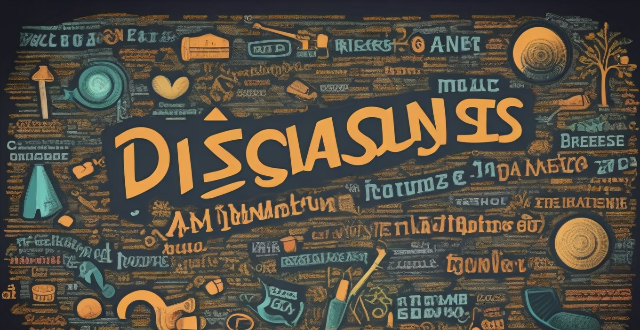
What are the challenges in implementing environmental legislation ?
The text discusses the challenges in implementing environmental legislation, including lack of awareness and education, insufficient funding and resources, political will and support, legal and administrative hurdles, technological limitations, and international cooperation and coordination. Addressing these challenges requires a multi-faceted approach involving education, advocacy, policy reform, and collaboration at all levels of society.

What are the challenges faced by IoT ?
The Internet of Things (IoT) faces several challenges such as lack of standardization, security and privacy concerns, scalability issues, interoperability problems, limited battery life, high costs, complexity of management, and legal and regulatory challenges. Addressing these challenges requires collaboration between manufacturers, developers, regulators, and users to create standardized protocols, secure systems, and scalable infrastructure that can support the growing number of IoT devices.

What challenges do we face in implementing resource-efficient utilization globally ?
Implementing resource-efficient utilization globally presents several challenges, including lack of awareness and education, economic barriers, technological limitations, legal and policy constraints, and cultural differences. Addressing these challenges will require a multifaceted approach that involves raising awareness, providing economic incentives, investing in research and development, creating supportive policies and regulations, and fostering cross-cultural understanding and collaboration.
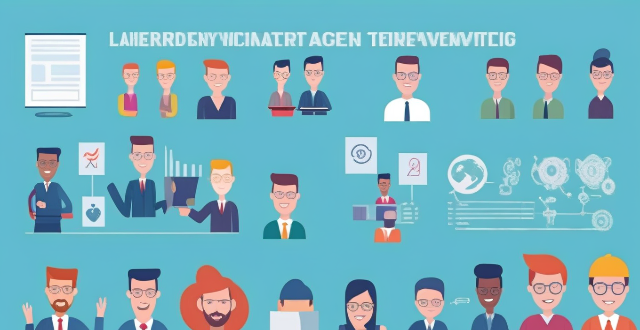
What are some common challenges faced by sports leaders and how can they be overcome ?
Sports leaders face a myriad of challenges that test their ability to manage teams effectively. These include maintaining team morale, dealing with performance pressure, handling injuries, balancing development and winning, navigating media scrutiny, managing finances, adapting to change, and upholding ethical standards. Strategies like fostering team cohesion, implementing mental skills training, having injury management plans, long-term planning, media training, financial diversification, staying informed, and promoting transparency can help overcome these challenges.

What challenges do we face in achieving a continuous supply of sustainable energy ?
The challenges to achieving a continuous supply of sustainable energy include technological limitations, economic barriers, political and social factors, infrastructure and grid integration issues, and environmental impacts. Addressing these challenges requires collaboration between governments, businesses, and individuals to work towards a more sustainable future for our planet.
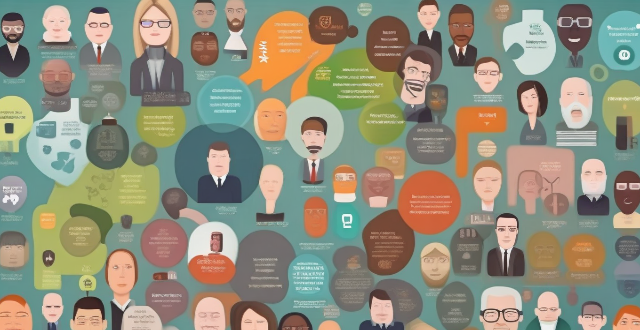
What challenges do developing countries face in adopting climate-smart technology ?
Developing countries face challenges in adopting climate-smart technology, including lack of financial resources, limited access to technology, inadequate legal and policy frameworks, limited human capacity, insufficient infrastructure, and cultural barriers. These challenges can hinder the adoption and implementation of climate-smart technology on a large scale, limiting their ability to address climate change effectively.

What are the challenges faced by the wind energy industry ?
The wind energy industry faces several challenges including intermittency, site selection, manufacturing issues, maintenance and reliability concerns, and environmental impact. Addressing these challenges requires innovation, policy support, and collaboration between stakeholders and communities.

What are the key challenges faced by female-centric non-profit organizations, and how can they be overcome ?
Female-centric non-profit organizations face several key challenges, including limited funding and resources, lack of visibility and recognition, gender bias and stereotyping, limited access to technology and digital tools, and balancing advocacy and service delivery. To overcome these challenges, organizations can explore alternative funding sources, increase visibility through social media and community events, prioritize diversity and inclusion, leverage cost-effective technology solutions, and build alliances with other organizations. By addressing these challenges, female-centric non-profit organizations can effectively support women and girls and create positive change in their communities.
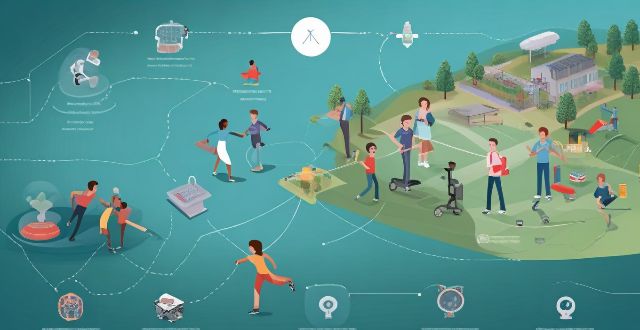
What are the potential risks and challenges associated with the increasing reliance on technology in sports ?
The integration of technology in sports has revolutionized the way games are played, watched, and analyzed. However, this increasing reliance on technology also brings several potential risks and challenges that need to be addressed, including overreliance on technology, cheating and unfair advantages, data privacy and security concerns, cost and accessibility issues, and health concerns related to excessive use of certain technologies. Addressing these challenges is crucial for maintaining the integrity and fairness of sports while still enjoying the benefits of technological advancements.

What are the key challenges facing the growth of green finance ?
Green finance is facing several key challenges, including lackGreen finance is facing several key challenges, including lack data availability, inadequ there needs to be greater harmonization and standardization of definitions and reporting requirements for green finance, increased efforts to collect and share data on environmental impacts and risks, stronger regulatory frameworks that encourage transparency and accountability, greater education and outreach efforts aimed at increasing awareness and understanding of green finance among investors, and greater emphasis on highlighting the potential economic benefits of green finance.

What are the current global challenges in achieving gender equality in education ?
Gender equality in education is a fundamental human right and key to economic growth, social development, and poverty reduction. However, several challenges hinder its achievement globally. One major challenge is the lack of access to education for girls due to poverty, cultural beliefs, and traditional roles assigned by society. Another challenge is gender bias in curriculum and teaching methods that lead to a lack of representation and role models for girls while perpetuating harmful stereotypes about gender roles. Sexual harassment and violence against girls in schools also hinder gender equality in education by creating an unsafe learning environment that can lead to low self-esteem, anxiety, depression, and dropping out of school altogether. Insufficient funding for girls' education prevents schools from providing proper facilities, materials, or trained teachers needed to support girls' learning. Addressing these challenges requires policy changes, increased funding, improved curriculum design, teacher training programs, and awareness campaigns targeting both parents and communities.